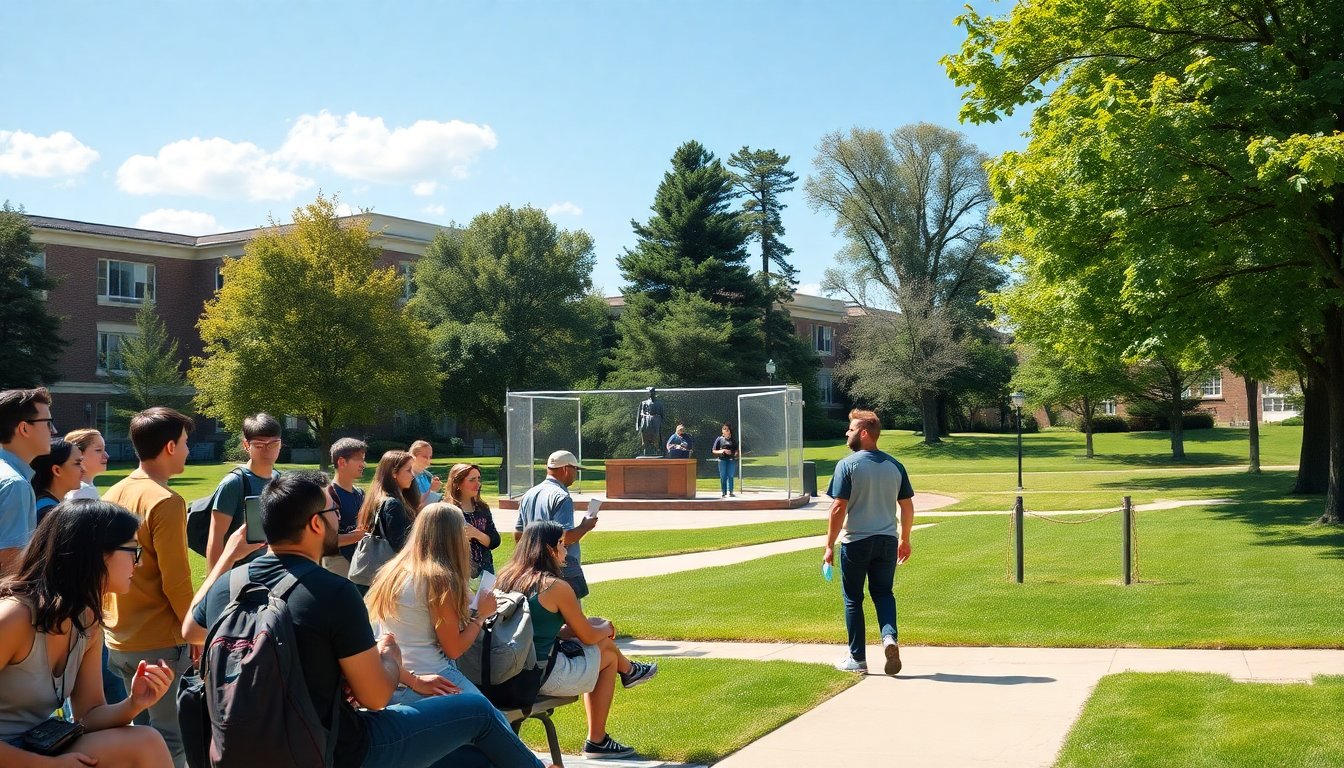Table of Contents
The recent push to erect statues of conservative figure Charlie Kirk on public college campuses has ignited discussions about the appropriateness of such memorials. This movement, led by lawmakers, has raised eyebrows among students and sparked debates among scholars regarding its implications for academic environments in the United States.
The movement for statues dedicated to Kirk is more than a symbolic gesture; it reflects a broader trend of politicizing public spaces. College campuses have traditionally been viewed as centers of free thought and diverse perspectives. The introduction of memorials honoring specific political figures can lead to a divisive atmosphere.
The rationale behind the push for statues
Supporters of the initiative argue that memorializing Kirk honors a significant voice in conservative politics, particularly among younger audiences. They assert that his contributions to the political landscape deserve recognition, especially in academic settings where open discourse is encouraged. As the founder of the conservative student organization Turning Point USA, Kirk has influenced the political views of many students.
Political implications of memorialization
Critics contend that placing Kirk’s likeness on campus would not merely celebrate his achievements but impose a singular political ideology on an inherently diverse community. This concern is particularly relevant in an increasingly polarized political climate. The presence of a statue can serve as a constant reminder of that ideology, potentially alienating students with differing beliefs.
Moreover, scholars note that erecting memorials to political figures is uncommon in the United States. Unlike other countries with long histories of commemorating leaders, the U.S. often grapples with the implications of such actions. This ambivalence can lead to a slippery slope where the placement of one statue may prompt calls for others, further complicating public discourse.
Student reactions and campus dynamics
The proposed memorialization has elicited reactions from the student body, ranging from support to outright hostility. Many students fear that introducing Kirk’s statue could alter their educational environment. Some argue it would create a sense of exclusion for those who do not identify with conservative ideologies.
Engagement in dialogue
In light of these tensions, student-led discussions have emerged on campuses nationwide. These forums aim to facilitate open dialogue about the implications of such memorials and their potential impact on the academic experience. Advocates for free speech and diverse perspectives emphasize the importance of engaging with contrasting viewpoints, while opponents of the statue call for the recognition of marginalized voices in political discourse.
The debate surrounding Charlie Kirk statues raises significant questions about the role of public memorials in educational settings. As lawmakers and institutions navigate this complex issue, the outcome may shape the future of political expression and representation on college campuses.
A reflective approach to memorialization
As conversations continue, it is essential to recognize the broader implications of memorialization in public spaces. The case of Charlie Kirk and the ensuing debate serves as a microcosm of larger societal discussions about identity, representation, and the values that institutions choose to uphold. The decisions made in the coming months will influence how future generations engage with political figures and their legacies.


